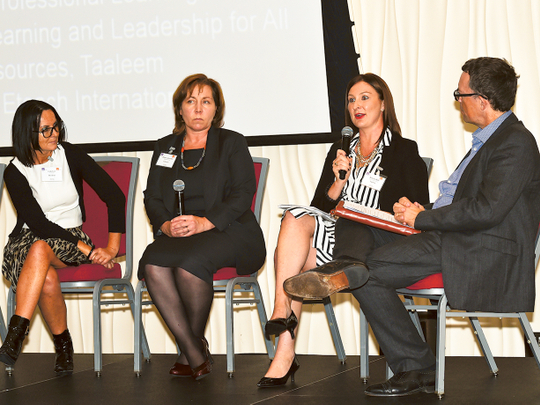
Dubai: Rising competition between private international schools in the UAE is fuelling demand for quality teachers, who now expect greater pay and benefits, experts told a school conference in Dubai on Tuesday.
Addressing the International and Private School Education Forum Middle East 2016 (IPSEF), they described the UAE as a “buyer’s market” for teachers. The UAE has the highest number of private English-medium international schools in the world, with 589 such schools, according to The International Schools Consultancy.
City-wise, Dubai leads the world in most international schools, with 276 schools. This school year, Dubai added 15 new private schools — a record annual increase. Abu Dhabi comes in third place globally, with 154 schools.
Richard Gaskell, director for international schools at ISC, said with the school count rising rapidly in the UAE and globally, the “biggest challenge is, where are schools going to find enough highly skilled English-speaking teachers?”
The supply of talented teachers is failing to meet demand in the UAE and globally as well, said Diane Jacoutot, managing director, Edvectus, UK.
What’s more, according to a new survey of over 530 UAE-based teachers by Which School Advisor, 43 per cent of teachers are “actively seeking another job”, while 73 per cent are “considering leaving for another country if a better offer comes up”.
James Mullan, editor, Which School Advisor, said: “It’s a buyer’s market for teachers in the UAE… And their number one issue is cash, with 80 per cent of survey respondents saying they will stay if they have better salaries.”
Housing now also ranks high on the list of UAE teachers’ expectations, a panel at the event discussed.
Taaleem, one of the UAE’s biggest school groups, recently started providing almost 200 teachers with free apartments. Participating in the panel, Rowan Bell, head of human resources at Taaleem, said schools, especially new ones, should be “realistic” and demonstrate “flexibility” while hiring.
Schools can no longer afford to offer “only Dh8,000 and still want quality teachers, if the average pay is Dh13,000”, said Jonathan Price, managing director, Eteach International. He pointed out that fewer teachers are leaving the major teachers’ source market for UAE schools, such as the UK, which is offering incentives to retain its teachers, reversing a “brain-drain”. Such incentives, which teachers in the UAE also expect, include career promotions and professional development.
The panel said UAE schools have increasingly started offering “family plans” or packages for teachers that cover health, visa, and schooling costs for their children.
Kalthoom Al Beloushi, executive director of educational development at Dubai’s Knowledge and Human Development Authority, told Gulf News that an upcoming teacher’s licensing project in the UAE will “create an opportunity for more teachers to be part of the education sector”. She added that figures indicate teachers are coming to Dubai in sufficient numbers.












